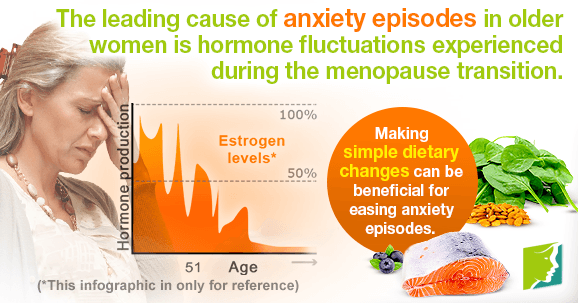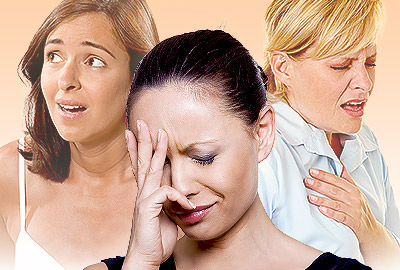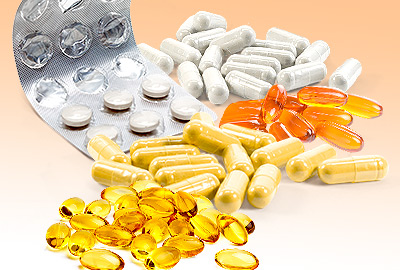Anxiety is a psychological state that is described as the overwhelming, persistent feelings of worry, tension, and nervousness, usually when there is nothing to provoke these feelings. An anxiety episode can happen at any time.
Postmenopause refers to the stage of a woman's life when menstruation has fully stopped. In the United States, the average age in which postmenopause occurs is 51, however it varies depending on genetics and lifestyle. This article focuses on the causes, symptoms, and treatments of anxiety episodes during postmenopause.
Anxiety Causes
The leading cause of anxiety episodes in older women is hormone fluctuations experienced during the menopause transition. During menopause, a woman's estrogen levels fluctuate, drop, and then stay consistently low. Estrogen significantly affects the brain's regulation of moods and emotions. Consequently, when a woman's estrogen levels drop, she is at higher risk of developing anxiety.
Additional factors that can trigger anxiety episodes include: excessive stress, genetics, certain medications, excessive caffeine consumption, emotional trauma, lack of exercise, and poor diet. Menopause symptoms - like anxiety and night sweats - begin to diminish once hormone levels subside during postmenopause.
Anxiety Symptoms
Symptoms of anxiety episodes are typically a combination of both physical and psychological. Physical symptoms of an anxiety episode include: sweating, dizziness, increased heart rate, shortness of breath, muscle tension, insomnia, and headaches. Psychological symptoms can be anything from feelings of dread and intense fear to restlessness and irritability.
Options Treatment
Follow these tips to overcome anxiety during postmenopause.
Relax
Taking time every day to relax is key to feeling good and managing stress and anxiety. Getting a massage, reading, or meditating are all effective ways to relax the body and mind.
Exercise
Getting regular exercise helps reduce stress and releases “feel-good” chemicals, like serotonin and endorphins, in the brain - thus, boosting mood and improving sleep. The recommended amount of exercise is around 30 minutes every day, or at least three times a week. Walking, yoga, and swimming are all good forms of low-impact workouts that can help ease anxiety.
Eat healthy
Making simple dietary changes can be beneficial for easing anxiety episodes. Including protein, fiber, fatty-acids, and fruits and vegetables into meals is ideal for boosting energy and reducing stress. Salmon, spinach, almonds, and blueberries are all healthy foods that have been known help lessen anxiety.
Herbal remedies
Herbs with strong sedative characteristics have been shown to help treat anxiety symptoms, calm the nerves, and soothe restlessness. Chamomile, lavender, hops, valerian, lemon balm, and passion flower are all calming, sedative herbs that are widely used for treating anxiety disorders. These herbs may be taken in supplement or extract form (i.e. capsules, teas, tinctures).
Anxiety disorders occur two times more in women than in men, which can be linked to the hormone fluctuations experienced during the menopause transition. However, it is important to know that menopausal symptoms should subside during postmenopause, when the hormone levels have subsided. Anxiety is a psychological condition that can affect personal relationships, and interfere with the ability to do simple tasks. There are many natural treatment options that can help ease anxiety episodes, and are also inexpensive and easy to incorporate into a daily routine.
Sources
- National Institute of Mental Health.(n.d). Anxiety Disorders. Retrieved on September 24, 2014 from http://www.nimh.nih.gov/health/publications/anxiety-disorders/index.shtml
- Office on Women's Health. (2012).Anxiety disorders fact sheet. Retrieved on September 24, 2014 from http://www.womenshealth.gov/publications/our-publications/fact-sheet/anxiety-disorders.html




